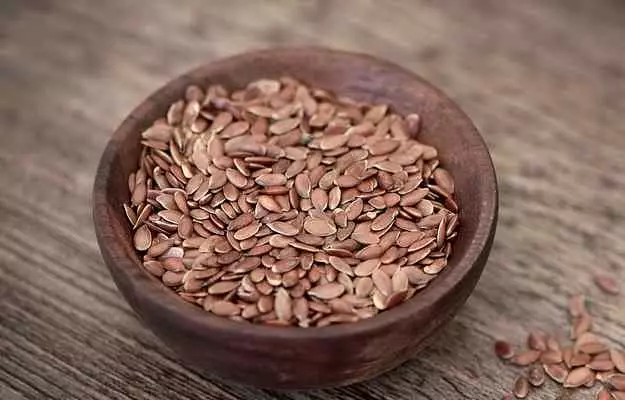Flaxseed oil and flax seeds are the favourites of every health conscious person in the modern world. Whether you want to lose weight, include more dietary proteins or need a fibre-rich food source, flax seeds cater to it all. Why should flaxseed oil be any different? Prepared from pressed flax seeds, flaxseed oil contains most of the nutritional goodness and health benefits of flax seeds. Of course, it can’t give you the benefits of flaxseed fibre but it is especially rich in alpha-linolenic acid, which is a type of omega-3 fatty acids. In fact, flaxseed oil is one of the richest sources of omega-3 fatty acids in the plant kingdom. And if you are a vegetarian or a vegan, it might be the best substitute for fish oil.
Omega-3 fatty acids, as a lot of us know, are excellent for preventing heart diseases and help to maintain cholesterol levels. They are useful in remedying dry skin conditions and fighting against common skin and scalp problems like dandruff and eczema.
In Ayurveda, it is considered to be excellent for reducing heart ailments and promoting weight loss. But most importantly, it is useful for reducing skin ageing.
In this article, you’ll know much more about the health benefits of flaxseed oil and how to use it to get maximum benefits. You’ll also learn about some safety concerns that need to be kept in mind while using this oil.
Some basic facts about flax seeds:
- Botanical name: Linum usitatissimum
- Family: Linaceae
- Common name: Alsi, Flax seed, Linseed
- Sanskrit name: Atasi
- Parts used: Seeds
- Native region and geographical distribution: Flax seeds are cultivated throughout Eurasia. In India, Maharashtra, Chattisgarh, Bihar and Madhya Pradesh are major cultivators of flax seeds.
- Energetics: Warming























